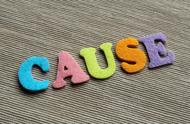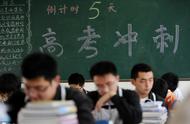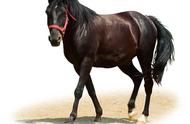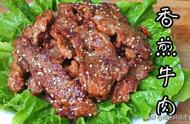
The sun is low in the sky. (此句中low用作形容词,意为“低的,矮的”,这是low的常用法。)
low还有其它用法。如:
① She’s been feeling rather low since her illness. (low用作形容词,意为“消沉的”。)
② The simplest way to succeed in business is to buy low and sell high. (low用作副词,意为“低价地,廉价地”。)
③ The gas is running low. (run low意为“几乎耗尽”。)
12. blindShe is blind in the left eye. (此句中blind用作形容词,意为“瞎的,盲人的”,这是blind的常用法。)
blind还有其它用法。如:
①The blinds were drawn to protect the new furniture from the sun. (blind用作名词,意为“窗帘,遮光物”。)
② The soldier was blinded in the explosion. (blind用作动词,意为“使失明”。)
③ This is a blind letter. (blind letter意为“因地址写得不清而无法投寄的信件”。)
④ He turned a blind eye to her mistakes. (turn a blind eye to意为“对……熟视无睹”。)
⑤ He’s blind as a bat without his glasses. (blind as a bat意为“完全看不见东西的”。)
13. film大家都很熟悉film作名词时有“电影”的意思。
除此之外film还有其它的意思。如:
①I put a new roll of film in my camera. (film在此句中作名词,意思为“胶卷,胶片”。)
②It took them nearly a year to film this TV series. (film在此句中作动词,意思为“拍摄”。)
14. landThe pilot landed the plane safely in the heavy snow. (此句中的land用作及物动词,意为“使着陆”,这是land的常用法之一。)
The journey to the far side of the island is quicker by land than by sea. (此句中的land用作名词,意为“陆地,大地”,这是land的常用法之二。)
除了以上用法外,land还有其它用法。如:
① Many farmers are leaving the land to work in industry. (the land意为“农村,农业”。)
② The car will land you there in twenty minutes.(land用作动词,意为“使到达,把……送到某地”。)
③ He’s really landed himself in it this time. (land sb. / oneself in sth. 意为“使某人陷入困境”。)
④ He wants to see how the land lies before taking any action.( how the land lies意为“事态,形势,概况”。)
15. causeShe’s always causing trouble. (此句中cause用作及物动词,意为“使发生,引起”,这是cause的常用法。)
cause还有其它用法。如:
①Smoking is one of the causes of heart disease. (cause用作可数名词,意为“原因,理由”。)
②People fought for the cause of freedom and peace. (cause用作名词,意为“事业,目标”。)

The theater is full, I’m afraid you’ll have to wait for the next show.
(此句中full用作形容词,意为“满的,充满的”,这是full的常用法。)
full还有其它用法。如:
① Jack hit him full in the face. (full用作副词,意为“直接地,精确地”。)
② Use your abilities to the full. (to the full 意为“充分地,彻底地”。)
③ He told me the story in full. (in full意为“全部地,全文地”。)
17. cleanWe must keep our hands clean. (此句中的clean用作形容词,意为“干净的,清洁的”,这是clean的常用法之一。)
She is cleaning the blackboard. (此句中的clean用作动词,意为“弄干净,清洁”,这是clean的常用法之二。)
除了以上用法外,clean还有其它用法。如:
① I clean forgot about it. (clean用作副词,意为“彻底地,完全地,全部地”。)
② The car needs a good clean. (clean用作名词,意为“清洁过程,清扫”。)
③ The government should come clean about its plans. (come clean意为“说出真相,全盘招供”。)
④ We clean the machine down at the end of each day. (clean sth down 意为“擦洗干净”。)
⑤ The waiter hurried to clean up the pieces of the broken plates. (clean up意为“清理掉,收拾干净”。)
18. holdhold在教材中的意思为“举行;召集;主持”,作动词用。
The plane holds about 200 passengers.
Who holds the world record for the high jump?
(上面两个句子中的hold还是动词的用法,但意思发生了变化,分别为“容纳”和“保持”。)
19. lightThis is a room with good light. (light用作名词,意思为“光,光线”,是教材中的第一种用法。)
It is so light that I can carry it easily. (light用作形容词,意思为“轻的”,是教材中的第二种用法。)
light除了以上的常见用法外,还有下列几种用法。如:
①May I borrow your light? (light用作名词,意思为“火柴,打火机”。)
②Since you’re not well, you’d better do some light housework.
(light用作形容词,意思为“轻松的,使人不疲劳的”。)
③My brother bought a bottle of light beer in the shop.
(light用作形容词,意思为“低度酒的”。)
④Wait a moment. I’ll light a candle. (light用作动词,意思为“点燃”。)
20. homehome在教材中的第一个意思为“家”,作名词和副词用;第二个意思为“家庭的”,作形容词用。
A lot of new homes are being built in the center of the town.
The home team took the lead after 25 minutes.
It’s time for home news.
在上面的三个句子中,第一个home作名词用,意思为“住宅,房子”;其余的两个作形容词用,意思分别为“主场的”和“国内的”。













